She is a message of positivity now, but just a few years ago Nicole Gibson weighed just 40kg. And it wasn’t until her school principal staged a one-man intervention that her whole life changed.
Tucked away in her beachside base, leader Nicole Gibson is mobilising a true millennial movement … arming her followers not with guns and tanks, but hashtags and emojis.
The message? Love out loud. #lol
This 26-year-old couldn’t be more radical. Yet among the hordes of hipsters hanging out at the cafes that line the Miami strip, you wouldn’t pick Nicole as a rebel with a cause.
Not until she opens her mouth.
Or, perhaps, until you read her book (titled, of course, Love Out Loud). Or look at the long list of awards this unassuming entrepreneur has achieved — including a finalist for Young Australian of the Year.
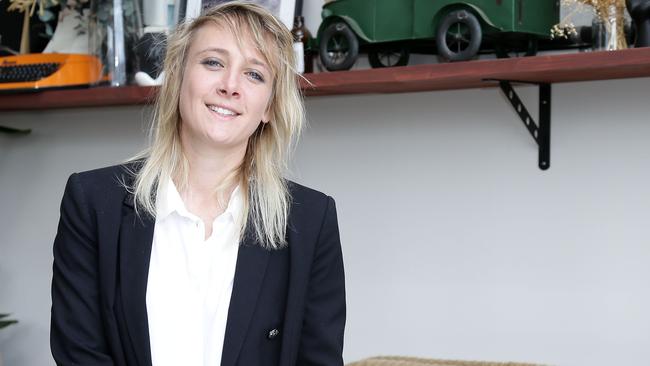
Oh, and she was also the country’s youngest ever Commissioner for Mental Health.
But we’ll get to that.
Right now, she has one thing on her mind: changing the world. And she has some big names in her sights to take her message global.
Looking at you, Justin Bieber.
It may sound like a stereotypical millennial fantasy, but Nicole’s long list of achievements measured against her short years suggests otherwise.
Her aims may sound idealistic — she prefers to be seen as “an unstoppable messenger of love and human potential’’ — but her methods are grounded in reality.
“I’m trying to take the ideals of Love Out Loud, which is all about recognising our humanity, our interconnectedness and the truth of our nature — which is to love, and make it a new global movement,” says Nicole.
SUBSCRIBE TO THE BULLETIN: JUST $1 A WEEK FOR FIRST 12 WEEKS
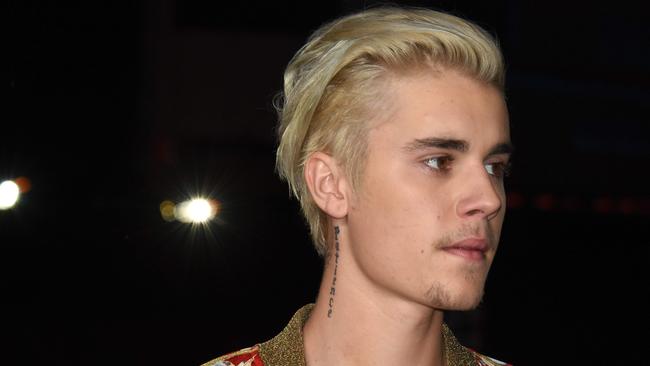
“Science says that I need to reach 4 per cent of the human population. At that point we will reach critical mass. We only need that proportion of the population to emphatically embrace the idea of Love Out Loud, and then physics says that the mass will follow.
“It sounds like a lot but Justin Bieber has more than 100 million followers on Instagram alone. That’s 2 per cent of the world’s population right there.
“All we need is two Justins and we’re done … not that it’s that easy.”
But Nicole does have an army of influencers that she’s about to unleash, along with a series of Love Out Loud retreats occurring around the world, including at Italy’s exclusive Lake Como, holiday home of A-lister George Clooney.
She also has plans to create her own Love Out Loud emoji as a shorthand symbol of the movement’s meaning.
THE INTERVIEW: PROFESSOR IAN O’CONNOR
It’s a long road ahead, but she says she has already travelled far.
A graduate of Bond University, where she recently won the Alumni Award for Community Achievement, Nicole completed her final years of high school at the Queensland Academy for Creative Industries, focusing on theatre and performance.
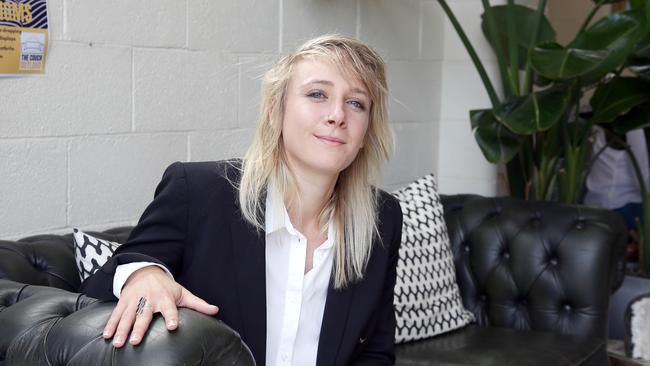
While she loved the coursework, she soon found herself battling anorexia.
“It was a horribly dark time,” she says. “I was very mentally unwell. I was having panic attacks, severe anxiety, I was down to 40kg, I was so far from a good place.
“But in that darkest time I also experienced an example of love and leadership so profound that it completely changed the trajectory of my life.
“My school principal, a man in his 50s, came to me and essentially staged a one-man intervention.
“He invited me into his office and then told me that whatever I was going through, I was not alone.
“That was just a revolutionary idea to me at that time. I felt so alone and so … pathetic. But then he said something else.
“He told me his favourite thing to do every day after school was to have a beer. But he said until I hit my target weight, he would not have a single beer. And he didn’t. For 18 months.
“That moment irrevocably changed my idea of what true leadership was. It showed me the power of empathy … it was the first example I had of the power of love to transform.
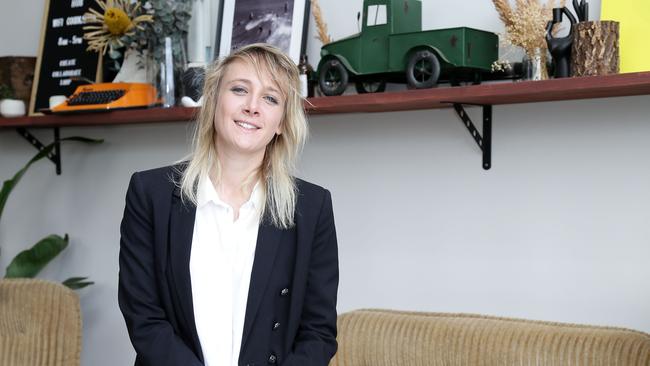
“I asked him later if it felt like a sacrifice and he said he always thought that it would, but that what came into his life by helping me was so much greater than what a beer could ever be … he said he realised when we do something out of love, it’s never a sacrifice. That’s profound.”
SUBSCRIBE TO THE BULLETIN: JUST $1 A WEEK FOR FIRST 12 WEEKS
Nicole says her lived experience with anorexia opened her eyes to the struggles associated with mental health, an illness which rarely registered on the social consciousness in the early 2000s.
It was while studying marketing at university that she realised she was drawn to helping others, and applied for a community grant to spread her message.
“I won a Sunsuper community grant. My pitch was basically talking to teens about mental health challenges and walking them through education and awareness.
“I decided to register as a non-profit foundation in 2011, and we became The Rogue & Rouge Foundation, focusing on education around mental and emotional health, alongside giving communities the tools and frameworks to build strong and connected structures.
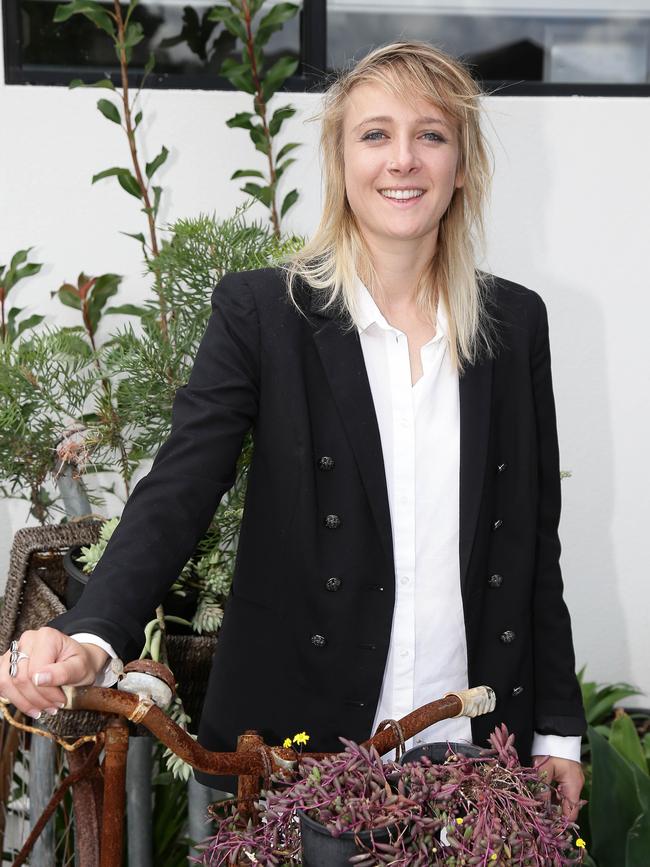
“Sunsuper sponsored me and I ended up travelling around Australia for two years on a speaking tour. I visited 300 communities. The value of having someone speak who has actually had their own mental health issues was amazing. I still receive emails from groups I visited telling me about the positive impacts that are still echoing through those towns.”
By the time Nicole came home to the Gold Coast, she found herself the recipient of multiple awards.
OTHER NEWS:
Lego Master contestants in brick battle on Coast
New Hilton owner plans dead body exhibit
Surfers high-rise raided in illegal prostitution probe
She was a finalist for the Young Australian of the Year aged 20 years old, and listed as one of Australia’s top 100 most influential women at 21, shortly after taking out the Pride of Australia Medal. She made the front cover of The Financial Review, the Yellow Pages and featured in a documentary aired on prime-time national television.
But she wasn’t ready to rest.
With the stories of teens from across Australia echoing through her head, she made her next move.
“Basically I had all the feedback forms from these kids and I just spread them across my floor and highlighted all the themes that kept coming up again and again. I just kept seeing phrases like a ‘need for purpose’, a ‘need for connection’. There was a theme here that we could work on and help. So I decided it was time to get political.”
Nicole realised to gain an entree to Canberra ears, she needed to form a parliamentary friendship group. Sourcing the necessary 10 parliamentary sponsors, she created the Parliamentary Friends of Youth Mental Health. With mental health not yet the buzz topic it’s become, she expected few to turn up to its launch.
But then news emerged of the suicide of celebrity Charlotte Dawson.
“Overnight, mental health became something we were talking about. ABC National interviewed me about the group and suddenly we had traction.
“At our launch we had Peter Dutton, who was then the health minister, and the CEOs of Beyond Blue and the Butterfly Foundation. It was incredible.
“Shortly after that, Peter Dutton’s office contacted me to become the Commissioner for Mental Health.
“I was like, what even is that?”
But Nicole, ever the quick learner, soon found out.
She served three terms in the role, seeking to redirect funds in ways that would more effectively help those with mental health issues.
“At the height of my Rogue and Rouge touring we had a sponsorship of about $300,000 and what we did with that was amazing.
“But now I was dealing with amounts of money that were just … incomprehensible.
“Yet what they were doing with that money was not having an effect at the time.
“All the money was going on treatment. They paid lip service to ‘prevention’ but really it was hanging up a Beyond Blue poster. There was nothing dynamic.
“Australia has a lot to learn in the way of innovation and community-connectedness. Much of our population lacks spiritual education and awareness. I feel this a significant contributor to our high rates of suicide and mental illness. We need not just a change of policy but a change of culture. You know, it’s great that we’re mentioning mental health and asking R U OK, but we still have a long way to go.’’
Nicole says after three terms as commissioner, she’d had her fill of politics and was ready to expand her remit beyond mental health.
While it’s still a priority to her, she believes creating a movement of love and empathy will by extension help those suffering from mental health issues.
So she left her high-flying post and wrote a book — a manifesto of personal enlightenment called, of course, Love Out Loud.
She’s now embarking on another speaking tour, travelling the world and supported by her army of influencers. In fact, she’s even pitching a reality show to Netflix featuring social media influencers living together but isolated from the outside world — and separated from their phones — as they embark on a path of soul searching and self-enlightenment.
Now that could be interesting.
“In my career so far, I’ve facilitated workshops and presentations with over a quarter of a million Australians,” she says.
“In 2016 I completed my first international speaking tour, speaking at institutions like Oxford University and The Anna Freud Centre. In my travels through Europe, the USA and Central/South America, I’ve noticed how our universal need for connection remains the same, regardless of our physical circumstances.
“I truly feel there’s only one way to change the world, and that’s to transform ourselves, to connect to that deep part of you that realises your greatest potential and understands your responsibility to give back to the world. That’s the fullest expression of yourself. That’s loving out loud.”

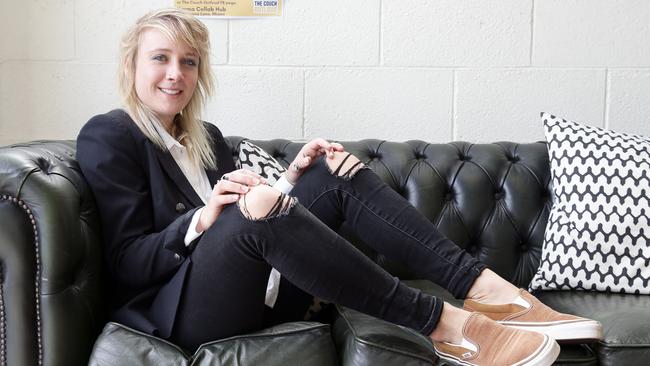
Add your comment to this story
To join the conversation, please log in. Don't have an account? Register
Join the conversation, you are commenting as Logout
Sharks unveil huge new stadium, $500m mega development
Southport Sharks has unveiled plans for a near-21,000-seat stadium and three residential towers in a massive redevelopment that could reshape the Gold Coast's sporting landscape.
Revealed: All Coast’s options for solving gridlock nightmare
The Gold Coast's population will surge by 350,000 in two decades, but the city's transport blueprint remains in limbo after light rail's dramatic cancellation. FIND OUT MORE